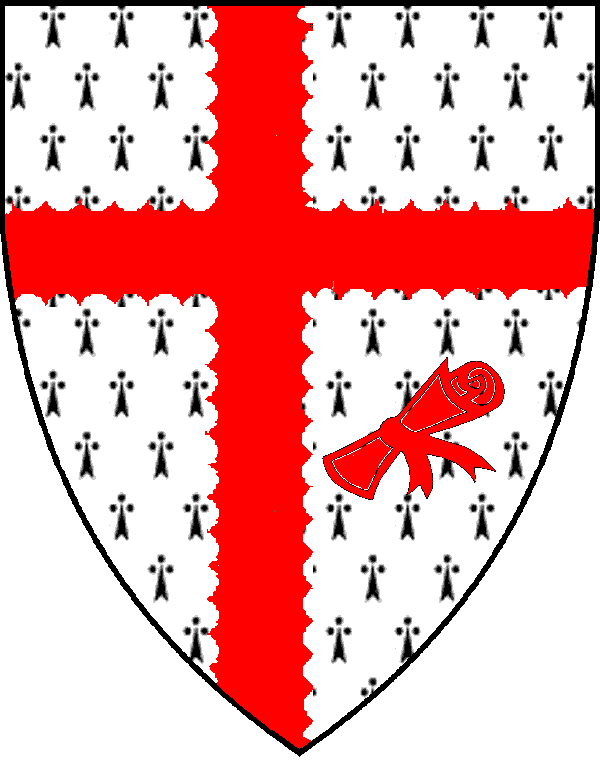Post by Gaglhen Fortaleça on Jun 5, 2015 5:17:17 GMT -6
Whereas Article III Section II of the Organic Law currently reads:
The King is the symbolic head of the nation. The nation democratically grants the King and his successors certain Royal Powers: The right to declare national holidays, grant titles of nobility, make the annual Speech From the Throne on the 26th of December (or at other times when events warrant), to veto bills (or Prime Dictates), to issue Writs of Dissolution and Warrants of Prorogation for the Cosâ, to grant pardons and commute sentences, to confer awards and decorations, to appoint the Seneschál after elections, and to appoint Governors of Territories upon the advice of the Seneschál.
Shall be amended to read:
The King is the symbolic head of the nation. The nation democratically grants the King and his successors certain Royal Powers: The right to declare national holidays, grant titles of nobility, make the annual Speech From the Throne on the 26th of December (or at other times when events warrant), to confer awards and decorations, and to advise the Seneschál on the appointment of Governors of Territories.
AND Whereas Article XI Section II of the Organic Law currently reads:
The King appoints the Seneschal. If a single party occupies a majority of the seats in the Cosâ, the King shall choose as PM whichever individual shall be designated by that party. If no single party has a majority, the King shall appoint a Seneschál after consulting party leaders with the objective of finding a PM who can be sustained in subsequent Votes of Confidence by a majority of seats in the Cosâ. The King must appoint a new Seneschál or announce the continuation of the incumbent in office within one month of the end of elections, or, if after one month no candidate can be appointed with the support of a Cosa majority, dissolve the Cosa after the first Clark and call for new elections.
Shall be amended to read:
The Seneschal is elected by the citizens of Talossa during the election of the Cosa. Seneschal candidates will be selected within parties and be voted for during the previously stated time frame.
AND Whereas Article XI Section IV currently reads:
The Seneschal has State duties. He may advise the King to dissolve the Cosa and to appoint and remove members of the Cabinet. His advice to the King on these matters may not be refused. The Seneschal may issues Speeches to the Nation in writing, declare war pending the approval of the Cosa, write treaties pending the approval of the Cosa, expedite the Ziu's consideration of legislation, and issue Prime Dictates.
Shall be amended to read:
The Seneschal has State duties. He may appoint and remove members of the Cabinet. The Seneschal may issues Speeches to the Nation in writing, declare war pending the approval of the Cosa, write treaties pending the approval of the Cosa, expedite the Ziu's consideration of legislation, and issue Prime Dictates.
P.S. This is only the first part
The King is the symbolic head of the nation. The nation democratically grants the King and his successors certain Royal Powers: The right to declare national holidays, grant titles of nobility, make the annual Speech From the Throne on the 26th of December (or at other times when events warrant), to veto bills (or Prime Dictates), to issue Writs of Dissolution and Warrants of Prorogation for the Cosâ, to grant pardons and commute sentences, to confer awards and decorations, to appoint the Seneschál after elections, and to appoint Governors of Territories upon the advice of the Seneschál.
Shall be amended to read:
The King is the symbolic head of the nation. The nation democratically grants the King and his successors certain Royal Powers: The right to declare national holidays, grant titles of nobility, make the annual Speech From the Throne on the 26th of December (or at other times when events warrant), to confer awards and decorations, and to advise the Seneschál on the appointment of Governors of Territories.
AND Whereas Article XI Section II of the Organic Law currently reads:
The King appoints the Seneschal. If a single party occupies a majority of the seats in the Cosâ, the King shall choose as PM whichever individual shall be designated by that party. If no single party has a majority, the King shall appoint a Seneschál after consulting party leaders with the objective of finding a PM who can be sustained in subsequent Votes of Confidence by a majority of seats in the Cosâ. The King must appoint a new Seneschál or announce the continuation of the incumbent in office within one month of the end of elections, or, if after one month no candidate can be appointed with the support of a Cosa majority, dissolve the Cosa after the first Clark and call for new elections.
Shall be amended to read:
The Seneschal is elected by the citizens of Talossa during the election of the Cosa. Seneschal candidates will be selected within parties and be voted for during the previously stated time frame.
AND Whereas Article XI Section IV currently reads:
The Seneschal has State duties. He may advise the King to dissolve the Cosa and to appoint and remove members of the Cabinet. His advice to the King on these matters may not be refused. The Seneschal may issues Speeches to the Nation in writing, declare war pending the approval of the Cosa, write treaties pending the approval of the Cosa, expedite the Ziu's consideration of legislation, and issue Prime Dictates.
Shall be amended to read:
The Seneschal has State duties. He may appoint and remove members of the Cabinet. The Seneschal may issues Speeches to the Nation in writing, declare war pending the approval of the Cosa, write treaties pending the approval of the Cosa, expedite the Ziu's consideration of legislation, and issue Prime Dictates.
P.S. This is only the first part

